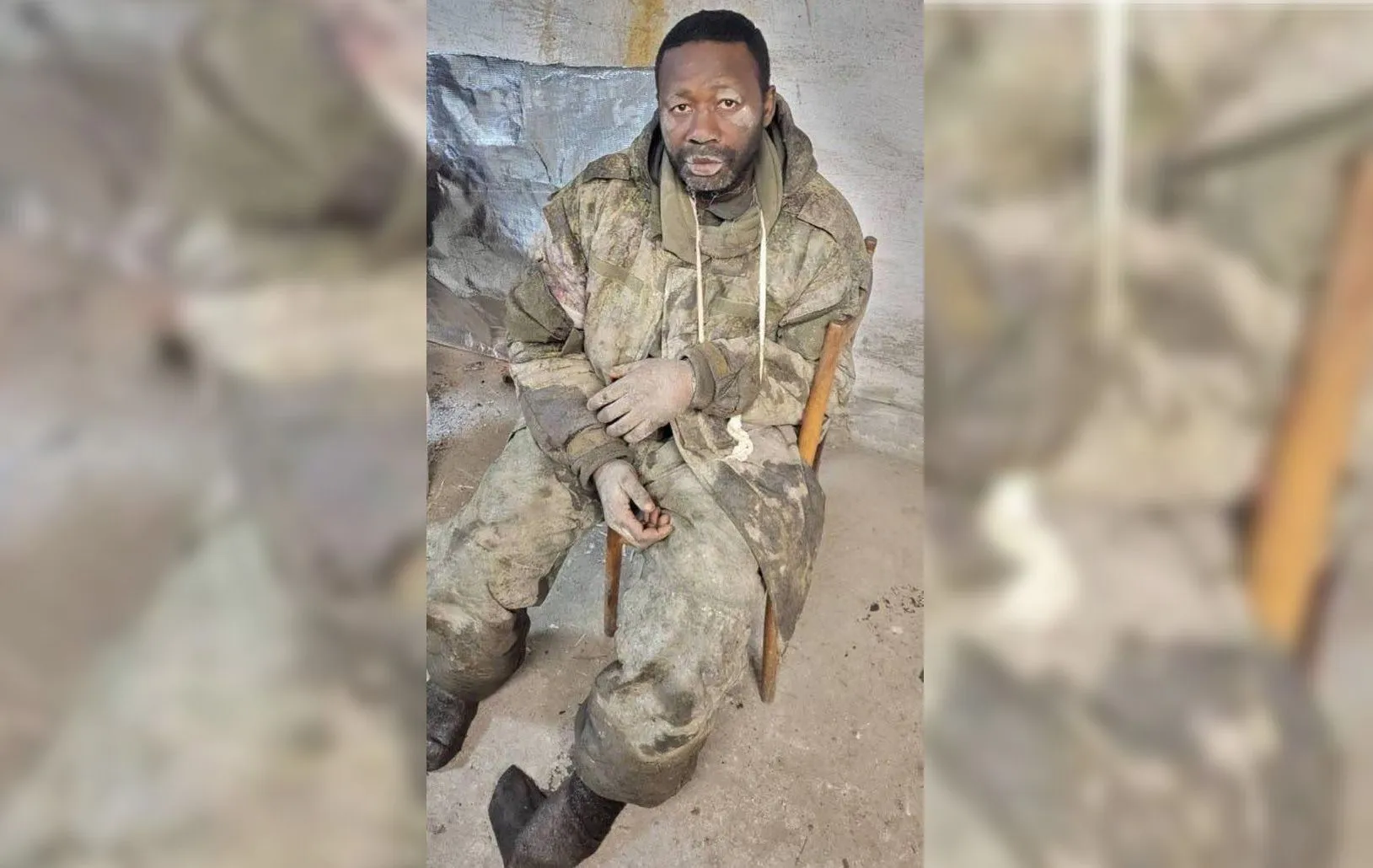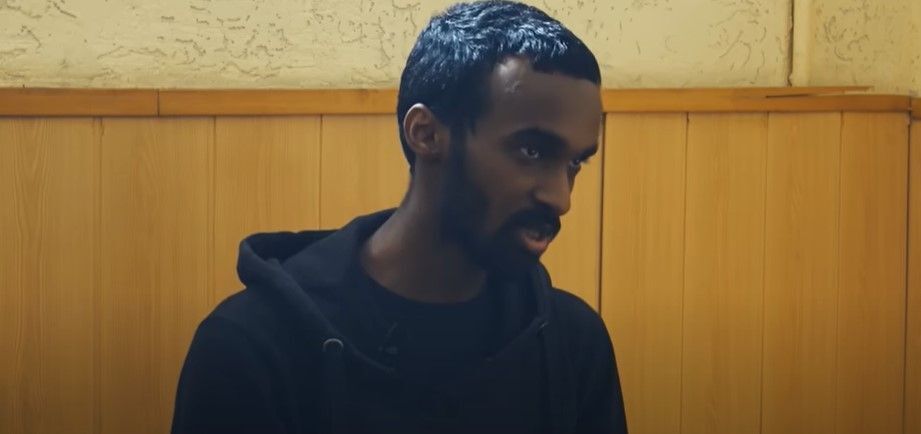War in Ukraine
Deception and threats: The media told how Russia is recruiting migrants from Africa for the war against Ukraine
Russia is actively recruiting migrants from Africa to fight in the war against Ukraine. Men who have come to Russia to seek a better life are sought out at universities, lured to the front by deception and even blackmail.
This is stated in the article by The Insider. The journalists talked to Africans who unexpectedly found themselves in the trenches and then in captivity in Ukraine.
One of them said that a military contract was slipped to him under the guise of a laborer, while the other was promised service as a bodyguard.
The publication notes that, according to the Russian Interior Ministry, since the beginning of 2024, 3,344 foreigners who went to war against Ukraine have been granted Russian citizenship.
Russian propaganda regularly shows stories about "volunteers" from "friendly" or "neutral" African countries joining the occupation army.
For example, in May 2024, RosTv showed a group of foreigners before they were sent to Ukraine. Among them was Lamin Jatta from Gambia, who spoke on camera about his love for Russia and his desire to fight for it.
However, a friend of his told The Insider that Lamin initially flew to Belarus on a student visa in the summer of 2023 and planned to cross the border illegally to get to Germany or the Netherlands.
After this attempt failed, the Gambian native went to work in the Russian Federation, where he was raided.
He was offered a choice: deportation to Africa or a contract with the Russian Defense Ministry.
In August, Lamin's family received the news of his death at the front in Ukraine.
Recruiters of Syrian nationals work according to a similar scheme, The Insider writes.
In particular, the company of Perm-based businessman Sergey Merzlyakov and his partner Khaled al-Amiri initially organized the flow of refugees from Africa and the Middle East to provoke a migration crisis at the borders.
Now, the same infrastructure is being used to recruit migrants for the Russian military. On social media, citizens from Arab countries are openly recruited to sign a contract with the Russian Defense Ministry, promising Russian citizenship and a salary of $2,200.
According to the decree signed by dictator Vladimir Putin in January 2024, mercenaries who signed a contract for at least a year during the "special operation" can indeed apply for a Russian passport.
However, there is no evidence of the regular use of large units of foreigners at the front. Obviously, small groups are involved in the rear and only occasionally participate in assaults.
Another indirect sign that foreigners are not of great importance to the Russian Armed Forces on the battlefield is the small number of prisoners of war, the article notes.
There are dozens, not hundreds or thousands, of such mercenaries in Ukrainian POW camps, and none of them have been replaced over the past year because the Russian authorities do not make relevant requests, and many face criminal charges for mercenarism at home.
Third-country mercenaries often find themselves on the battlefield by force, The Insider's interlocutors said.
Richard from Sierra Leone came to Russia in November 2023 in search of a regular civilian job, although he had served in the army in his home country for more than a decade.
As you know, Sierra Leone has the lowest salaries in the world, the man says. The average salary per month is about $40.
"To earn money, I joined the army of my country, Sierra Leone. Now I have two children, a boy and a girl. My daughter has always been smart and told me she wanted to become a doctor. I told her: "Okay, I will try to do my best to help you achieve your dream," he told reporters.
Richard said that he had been saving money for several years and eventually, after collecting his savings and borrowing from relatives, he managed to travel to Russia on a tourist visa.
"You could go to other countries only if you had 15-20 thousand dollars, and moving to Russia cost me about half as much – 7 thousand dollars. I planned to find a job and start sending money to my family right away," the man said.
In November 2023, Richard flew to St. Petersburg. It was difficult to find a job without a work permit and knowledge of Russian, so a few weeks later he contacted a travel agent who helped him get a visa.
An employee of Azimuth Tour Service communicated with Richard via messengers. It was impossible to meet him in person, which seemed strange to the foreigner.
According to Richard, the agent promised to send him a taxi to take him "to a place where a person is waiting for you to complete the documents."
"No one asked me whether I wanted to sign a contract for military service or not. The papers were in Russian, and I did not understand what was written there. All they wanted from me was a signature," the African said.
After a while, the agent called Richard back and said that his "contract was accepted."
"I asked, 'What contract?' He replied that it was a job, but first I would need to go through training to gain experience. I agreed. My contract was accepted on December 7, 2023. On December 10, I was told to take all my belongings with me, and we left St. Petersburg for Rostov."
In Rostov, the African was met, put on a bus, and taken to a military base. There, he was told that he had to undergo military training for two weeks and then go to the front in Donbas.
"They took our documents and phones. A few days later I got my phone back, and I wrote to the agent: "What am I doing on a military base?" He replied: "Richard, you signed a contract with the army. It's the easiest way to get your papers and they will pay you for signing the contract." They didn't tell me the exact amount, but they said my monthly salary would be 2,000 dollars," Richard said.
After a year of service, he was promised Russian citizenship and housing assistance. When Richard said that he did not want to serve in the army because he had already served for many years, he was told that the contract had already been signed.
"I continued to insist that I did not want this contract and then the agent blocked my number, I could no longer contact him," the man said.
Two weeks later, he was already in Ukraine. At the base in occupied Donetsk, foreigners were kept under strict guard:
"Wherever we went, people with guns followed us. Even to the restroom. Then I learned that many Russian soldiers were prisoners who signed contracts to be released after a year at the front. I thought: why should we be on the same terms? After all, we have not been in prison and have no problems with the law, why are we kept under the same control?"
Initially, Richard was allowed to do household chores, but then he was sent to another position where he had to participate in an assault.
According to the African, the Russian command sends most foreigners to the front line, while "real" soldiers "stay behind, watch and wait for the moment to seize the position."
"The commander from the next position sent me and two other soldiers to storm a bunker. I asked him how the three of us could capture the bunker if we were under fire from artillery, tanks, and snipers, and there were drones above us. He replied that we had to obey orders. The next morning we moved to the position. Before that, we had been advancing 30, 50, 100 meters at most, but now we had covered more than 250 meters. But in this last section, Ukrainian forces spotted us," Richard says.
His unit was ambushed, and he was shot in the leg. They managed to take refuge in a dilapidated building, where they spent a week without food, water, or communication – the mercenaries, as Richard admits, "had to drink urine."
When the evacuation finally began, Richard's colleagues jumped over the fence, and he fell and fainted because he was too exhausted:
"After 5-10 minutes, I came to and looked around, but I didn't see my unit. And then another grenade was dropped on me from a drone. I was in the epicenter of the explosion and was bleeding, my arm went numb in seconds. But I kept moving. I prayed: "Please, Lord, forgive my soul, because I did not know what I was getting myself into."
The man spent the whole night under fire, and in the morning he was found by soldiers of the Ukrainian Defense Forces.
"They surrounded me, fully armed. I screamed: "Don't shoot, don't shoot! I'm a Russian soldier, I'm a Russian soldier. Please don't shoot!" The commander, who spoke English, said: "Come out, but don't do anything stupid, or you'll regret it." I raised my hands and got out as best I could. I remember being told that if the Ukrainians caught us, they would kill us like animals. But they promised me medical care. So I was captured," the African said.
The man has been in Ukrainian captivity for more than eight months. He admits that even before coming to Russia he had heard about the war in Ukraine, but did not understand the essence of it:
"Back home, we watched Al-Jazeera, BBC, CNN and followed the war as it unfolded. We heard different versions until I ended up here in Ukraine. Here they say that they are fighting for their land, which Russia has been trying to take away from them for over a hundred years. I realized that I know nothing about this war. I know nothing about Russia. And I was a fool to follow every order I was given. I pray that when I am released, I will not find myself at war again. My family has not known where I am for more than eight months. None of them knows that I was captured."
Another interlocutor of The Insider, Somali-born Adil, also went to Russia to work. His home country has been in a civil war for decades, and his job at a supermarket did not bring enough profit.
In Moscow, he got a job with a company that sells winter clothing, but he was only paid about $200 a month. Then he became interested in serving in the Russian army under contract as a way to get a higher salary and Russian citizenship.
Unlike Richard, Adil made a conscious choice, but he claims that he was promised a security position.
However, contrary to expectations, the man found himself right on the front line.
"I was in shock. I had no way to object. Besides, if I had spoken, no one would have understood me. I didn't understand most of what was said to me either. At that time, Russian seemed very difficult to me, and I could not understand what they were saying. They just said: "Go to the front line. Go to the front line," he says.
Adil spent only a few days at ground zero. Together with other occupants, he was ambushed, and soon they had to surrender.
Now the Somali regrets his decision to join the Russian army:
"There were a lot of people killed on the front line. You just try to survive. When someone is in this situation once, they will not be in it a second time, as long as they are sane."
Like Richard, Adil hopes to be released from captivity soon, but he does not want to return to Somalia, where the war is also ongoing.
"I faced war, I saw war with my own eyes every day. I was a civilian there. If I go back to my country, it will be a start not from scratch, but from the bottom. This is much worse. That's why I don't want to return to my country," the man says.































